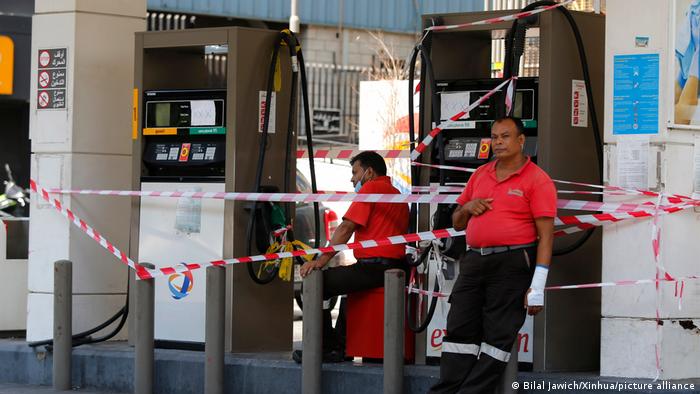
Lebanon has been mired in economic crisis since 2019. Recently, a severe fuel crisis has gripped the country and has exacerbated the situation considerably.
The fuel shortages hit so hard that a fuel crisis soon became a humanitarian crisis. Lebanese citizens found themselves lining up for hours at petrol stations to receive limited rations of fuel, the price of which has skyrocketed.
Generators, starved of diesel, provided fewer hours of electricity to houses and businesses. Even hospitals were deprived of power.
With the government struggling to manage the crisis, Hassan Nasrallah, the political leader of Hezbollah, announced in August that Iranian fuel would be brought into Lebanon.
The first two shipments arrived via Syria on September 16 and 17. Several videos and pictures posted on social media showed people celebrating the arrival of the fuel convoys. A third shipment is expected to arrive this week.
The delivery was not officially approved by the government. The trucks entered via an illegal crossing which violates US sanctions against Iran. So far, the US has not tried to block the shipments.
The US didn't sit back. Following Nasrallah's announcement, the US ambassador to Lebanon, Dorothy Shea, revealed that the United States was working closely with the governments of Egypt, Jordan and Lebanon, along with the World Bank, to find sustainable solutions for Lebanon's fuel and energy needs.
On September 8, the US-backed effort to satisfy Lebanon's energy needs took place in Amman, Jordan, where ministries from Egypt, Jordan, Lebanon and Syria outlined a road map to pipe Egyptian natural gas to Lebanon via Jordan and Syria through the Arab Gas Pipeline (AGP). Another part of the plan involves providing electric power to Lebanon from the Jordanian grid.
Although the US proposals would not alone be enough to satisfy market demand, Roudi Baroudi, chief executive of the consultancy Energy and Environment Holding, told DW that the proposals were good ideas as they could increase the supply of electricity to the country.
He explained that, though the AGP is ready for use, the electric cables passing through Damascus were heavily damaged during the Syrian civil war and needed to be repaired. "The gas from Egypt will be sufficient for 8-10 hours per day. Electricity from Jordan and Syria would add 2-3 hours," he said.
Technical issues apart, the competition between the US and Iran to help Lebanon in the energy sector has wider implications for the region.
In Lebanon, the Iranian fuel shipment cemented Hezbollah's powerful image. The new Lebanese Prime Minister Najib Mikati said Iranian fuel imports constituted a breach of Lebanon's sovereignty, but he didn't follow with any actions.
For Iran, shipping fuel to Lebanon is a sign of a new vision of its foreign policy, according to Sina Toossi, a senior research analyst at the National Iranian American Council (NIAC). He told DW that Iran wanted to become a regional power and neutralize the effects of imposed sanctions by increasing trades with its neighbors.